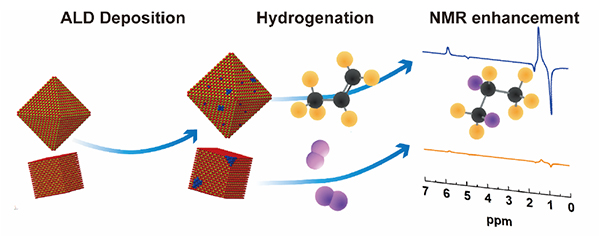Helena Hagelin-Weaver, Ph.D., an associate professor in the Department of Chemical Engineering (ChE), is leading a three-year, $633,000 grant from the National Science Foundation titled: Rational Design of Atomically Precise Catalysts for Parahydrogen Enhanced Nuclear Magnetic Resonance Imaging and Spectroscopy.
Dr. Hagelin-Weaver will collaborate with Clifford Bowers, Ph.D., a professor in the UF Department of Chemistry, to design catalysts that can add spin-labeled hydrogen molecules used as contrast agents to improve magnetic resonance imaging signals.
Improving the sensitivity of nuclear magnetic resonance will enable new imaging modalities in biomedicine for drug-discovery, protein interactions, magnetic resonance angiography, identification and monitoring of metabolic dysfunction for tumor detection, and brain perfusion.
“We expect that this research will further the atomic-level understanding of interactions between the various catalyst components such as support oxide and active metal, and how they influence the interactions with reactant molecules,” said Dr. Hagelin-Weaver. “This research can result in an efficient and inexpensive way to produce pure — without toxic impurities — spin-labeled biomarkers, which in turn can be used in medical applications to enhance MRI signals by several orders of magnitude.”

This advance will represent a transformative development in the field of biomedical imaging and new understanding of catalyst structure-activity relationships.
Dr. Hagelin-Weaver directs the Hagelin-Weaver Research Group, which works on heterogeneous catalyst development and fundamental understanding of these catalysts at the atomic level.

